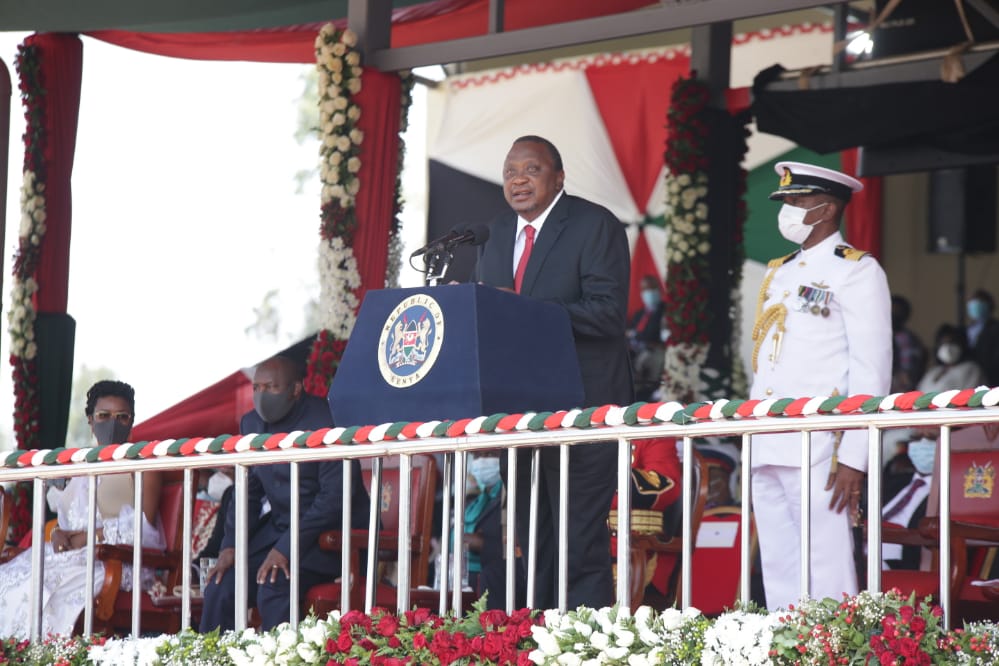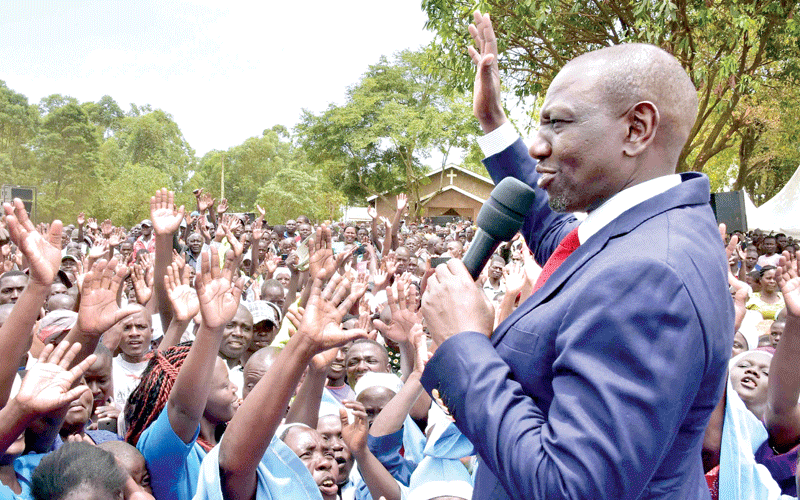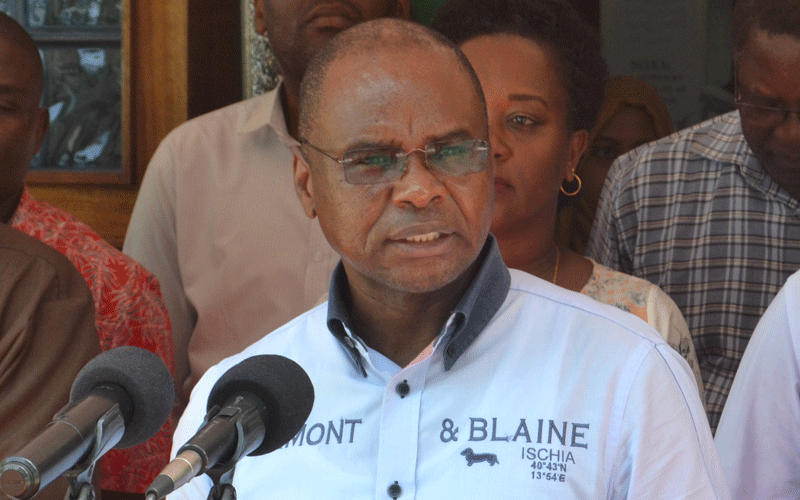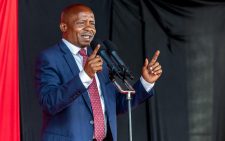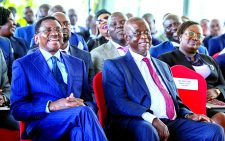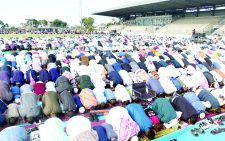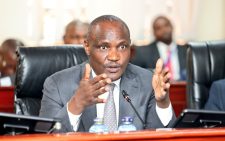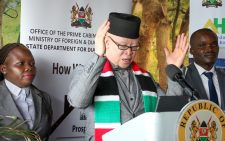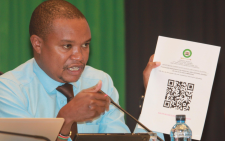Why political bigwigs could contest as MPs
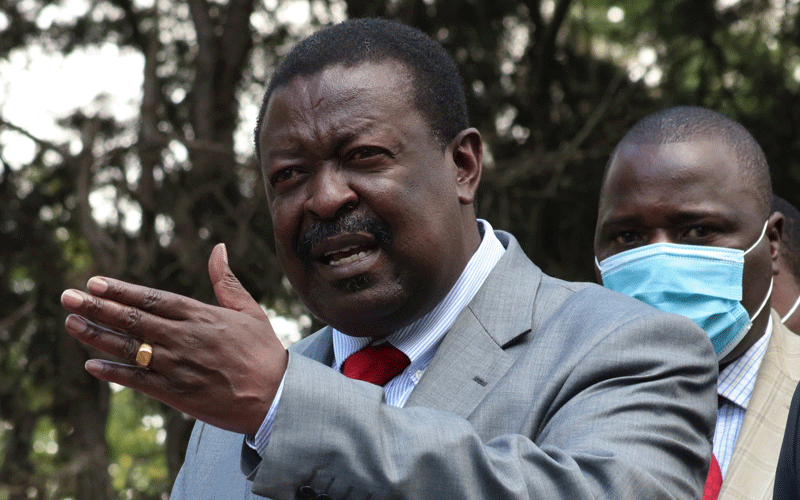
Emeka-Mayaka Gekara
Politicians seeking to occupy the influential posts of Prime Minister and two deputies will have to seek election as Members of Parliament (MPs) if the Building Bridges Initiative (BBI) Bill is adopted.
According to the bill which was unveiled in Nairobi on Wednesday, one must be a MP to qualify for appointment as premier.
Politicians who have been linked to the new positions include former Prime Minister Raila Odinga, former vice-presidents Kalonzo Musyoka and Musalia Mudavadi, Council of Governors chairman Wycliffe Oparanya, governors Hassan Joho (Mombasa) and Anne Waiguru (Kirinyaga), Senator Gideon Moi (Baringo) and former Gatanga MP Peter Kenneth.
Should they decide to seek the positions, they may have to retreat to their home constituencies to seek parliamentary seats, a move that could thrust some of them into an awkward position, having previously occupied higher positions in government.
Alternatively, they may decide to seek election through urban constituencies.
The awkwardness of going to seek what may be regarded as inferior positions can perhaps be illustrated by governors who have been running counties being forced to retreat to their local constituencies.
Devolved units
The county chiefs are elected by people from all constituencies in a devolved unit.
Says the Constitutional Amendment Bill, 2020, that was launched by President Uhuru Kenyatta and Raila.
“A person is eligible to be nominated as the Prime Minister if the person is an elected member of the National Assembly who is the leader in the National Assembly of the largest party or coalition of parties.”
The two deputy prime ministers proposed in the document will also be elected members of the National Assembly. Once appointed, they will be assigned Cabinet portfolios.
The fact that the President will pick some cabinet ministers from the National Assembly, is probably the other reason why many key politicians will be inclined to contest parliamentary seats.
“Those aspiring for those positions would have to retreat to their constituencies to seek parliamentary seats.
I would have to go back to Kacheliba to seek a parliamentary seat,” Senate Majority Leader Samuel Poghisio said yesterday.
“The only route to the premiership is through the National Assembly. You must be elected first as an MP or forever be condemned to be a senator,” said Nyamira Senator Okong’o Omogeni.
Contest presidency
According to Poghisio, the BBI bill “pampers” the National Assembly which will also produce some cabinet ministers.
“The National Assembly is the biggest winner of the BBI. At the Senate we were only given the token power of vetting the Judiciary Ombudsman and Controller of Budget as well as oversight base revenue,” said O’mogeni, who is the chairman of the Senate Justice and Human Rights Committee.
According to Machakos Governor Alfred Mutua, who has declared his intention to vie for the presidency, seeking parliamentary seats will be “a retreat for higher gain”.
“Even governors seeking the posts will have to seek a constituency seat. It works out very well because it will cushion politicians with a post instead of remaining in the cold after losing,” said Mutua.
But Kanu secretary general Nick Salat argued that the requirement will thrust politicians who had occupied higher positions such as Raila, Kalonzo and Mudavadi in an awkward position. The three political supremos have contested the presidency in past elections.
Kalonzo, Mudavadi and Mutua have maintained they will contest the presidency in 2022 while Raila has kept his ambitions close to his chest.
“If they want the seats Raila may have to retreat to Kibra, Mudavadi to Sabatia and Kalonzo to some constituency in Kitui.
Maybe it is a blessing in disguise so that they may retire and pave way for those of us who have not occupied such positions,” said the former MP.
According to the BBI bill, the Prime Minister shall be the Leader of Government Business in the National Assembly who will also oversee the legislative agenda on behalf of the government.
The PM will also supervise execution of the functions of ministries and government departments, chair cabinet committee meetings and assign any of the functions of the office to the Deputy Prime Ministers.
The BBI project is calculated to address the 9-point agenda items that Uhuru and Raila identified as among the country’s most pressing issues, including divisive elections, political inclusion, corruption and lack of national ethos.
Imperial presidency
Speaking during the Wednesday launch at the Kenyatta International Convention Centre, Raila rubbished claims that BBI was creating an imperial presidency, saying the proposed Premier will be appointed by the President after approval by Parliament to which he or she will be accountable.
“I have been a victim of the an imperial presidency and I will be the last person to advocate for the same. The Prime Minister will come to answer questions from MPs in Parliament.
This will avoid a situation in which House committees have been calling Cabinet Secretaries to Parliament to ask for money from them so that they can be cleared of allegations against them,” Raila said.
An expanded Executive will also create positions for senior politicians who have previously been left in the cold after losing, despite the fact that they command significant following.
This way, BBI is meant to cure the winner takes it all system which has left sections of the population feeling left out of government.
Catholic bishops have called for a further examination of the BBI proposals particularly controversial areas touching on the Executive, Parliament and elections.
The Kenya Conference of Catholic Bishops (KCCB) has cautioned against the reintroduction of what they described as an “imperial presidency” by giving the President sweeping powers including appointing the Prime Minister and two deputies.
They cautioned that such a constitutional amendment will not solve the ‘winner-takes all’ problem, a key challenge President Kenyatta Raila said they wanted to address at the inception of the BBI in 2018.
“To give the President the power to appoint a Prime Minister and two deputies risks consolidating more power around the President thereby creating an imperial presidency,” the bishops said.
But throwing his support behind the document, ANC party leader Mudavadi yesterday indicated the issue of an imperial presidency had been addressed by ensuring the appointment of a PM must be approved by Parliament.
“Certainty has now been established by providing that the President will ‘nominate’ (not “choose”) a prime minister who is an elected member and leader of the majority party in the National Assembly. Presidential discretion is thus removed from it,” said Mudavadi.
